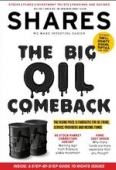Archived article
Please note that tax, investment, pension and ISA rules can change and the information and any views contained in this article may now be inaccurate.
Why many funds are more expensive than you thought

Some of the most popular funds in the UK are charging fees that are up to 85% more than investors previously thought, analysis shows.
The surprising figures have been revealed following new regulations that require fund managers to be more transparent about the fees they charge to investors.
WHAT ARE THE EXTRA FEES?
Under the Markets in Financial Instruments Directive (MiFID II), which came into force on 3 January 2018, fund groups must not only disclose their ongoing charges figure (OCF), but also their transaction costs.
The OCF includes custody and administration fees, whereas transaction costs are those incurred by the fund for buying and selling securities.
Data from investment consultancy The Lang Cat shows these transaction costs add, on average, an extra 0.2% on to the costs of the 20 most popular funds. The average OCF is 0.77%, but transaction fees increase the total cost of ownership to an average 0.97%.
The research shows Vanguard LifeStrategy 60% Equity Fund (GB00B3TYHH97) has an OCF of just 0.22%, but transaction costs of 0.11% make the actual cost of ownership rise to 0.33%.
Janus Henderson UK Absolute Return (GB00B5KKCX12), which has an OCF of 1.06%, has particularly high transaction costs of 0.79%, making the total cost of ownership a huge 1.85%. The fund also has a performance fee.
Some funds disclose their transaction costs as zero, although it’s possible these are being met from company profits.
WHAT DOES IT MEAN FOR INVESTORS?
The charges have always been there, but the visibility provided by the new regulation is an eye-opener.
‘These fees are something that investors should look at,’ says Mike Barrett, consulting director at The Lang Cat.
‘The extra visibility allows you to fully understand the total cost of investing. For a lot of funds it will be more than you previously thought, albeit the costs haven’t actually gone up.
‘It’s worth looking at where your money is invested and making sure you’re comfortable with it from a cost point of view.’
Active funds are traditionally thought to be more expensive than passive funds, but the data shows this isn’t always the case when it comes to transaction fees.
Fundsmith Equity (GB00B41YBW71), an active fund, has a transaction costs figure of just 0.05% – much lower than the passive Vanguard LifeStrategy range. This is because Fundsmith Equity invests in a small number of stocks and uses a ‘buy and hold’ strategy rather than trading frequently.
HOW CAN I COMPARE THE CHARGES?
Investors should be careful about comparing transaction costs, says Nick Blake, head of personal investing at Vanguard.
He argues that it is only meaningful to compare the transaction costs of similar funds – for example two FTSE 100 trackers rather than a FTSE 100 tracker and an emerging markets equity fund.
Even then, it is the total cost of ownership which is important.
‘The intention of the regulation is to bring transparency and better decision-making. But instead of comparing apples with apples, people are trying to compare apples with motor bikes, i.e. funds with completely different investment objectives and holdings,’ says Blake.
BEWARE DISCLOSURE VARIATION
MiFID II didn’t specify how fund managers should calculate transaction fees. This means there could be considerable variation in the information being provided.
Alan Miller, founding partner and chief investment officer of SCM Direct, says: ‘We have been surprised by some of the previously hidden transaction cost numbers we have discovered in our research – both in terms of under-estimating and over-estimating.
‘We are aware of one provider that found that the firm it had employed to calculate these costs had over-inflated the transaction costs for one of its funds by 90%.
‘This and other findings lead us to believe there is little consistency or robustness in the methodology being used by firms, even when they are aiming to fulfil the legal requirement for 100% transparency on investment costs.’
HARD TO PREDICT TRANSACTION FEES
Another difficulty is that transaction fees can fluctuate over time. Jose Garcia-Zarate, associate director of passive strategies research at Morningstar, says because the fees depend on how often the fund manager trades, they cannot be fully known in advance.
‘Fund managers may also carry out activities that help to reduce those costs. Hence why they’re so difficult to estimate ex-ante. For example, funds may engage in securities lending. This practice may generate important profits, which can be partly returned to the fund, and thus partly offset other costs that have been incurred,’ he explains.
Garcia-Zarate adds that because transaction costs are variable, investors need to tread carefully before making a firm judgement.
HOW IMPORTANT ARE FEES?
Over time fees can eat into returns and erode performance. But in some instances high fees can be justified – namely, if the fund is outperforming its peers. Fund performance is always shown net of costs.
Darius McDermott, managing director of Chelsea Financial Services, comments: ‘There is a real fixation on costs above all other things at the moment, whereas to me performance after fees is what is really important.
‘I am willing to pay a little more for a fund I believe will do better over time. What I would not want to see is a good fund manager trading less – and possibly negatively impacting their performance – simply to keep costs low.’ (EP)
DISCLOSURE: Editor Daniel Coatsworth has a personal investment in Fundsmith Equity referenced in this article
Important information:
These articles are provided by Shares magazine which is published by AJ Bell Media, a part of AJ Bell. Shares is not written by AJ Bell.
Shares is provided for your general information and use and is not a personal recommendation to invest. It is not intended to be relied upon by you in making or not making any investment decisions. The investments referred to in these articles will not be suitable for all investors. If in doubt please seek appropriate independent financial advice.
Investors acting on the information in these articles do so at their own risk and AJ Bell Media and its staff do not accept liability for losses suffered by investors as a result of their investment decisions.
Issue contents
Big News
- EMIS stung by after-care foul-up
- Draper backing for cryptocurrency start-up
- Market shock after Dignity unveils radical new pricing structure
- Top performing funds are harder to find
- US treasury yields hit highest level since 2014
- Bookies bashed on £2 betting stake cap reports
- Connect crashes on profit warning
 magazine
magazine











